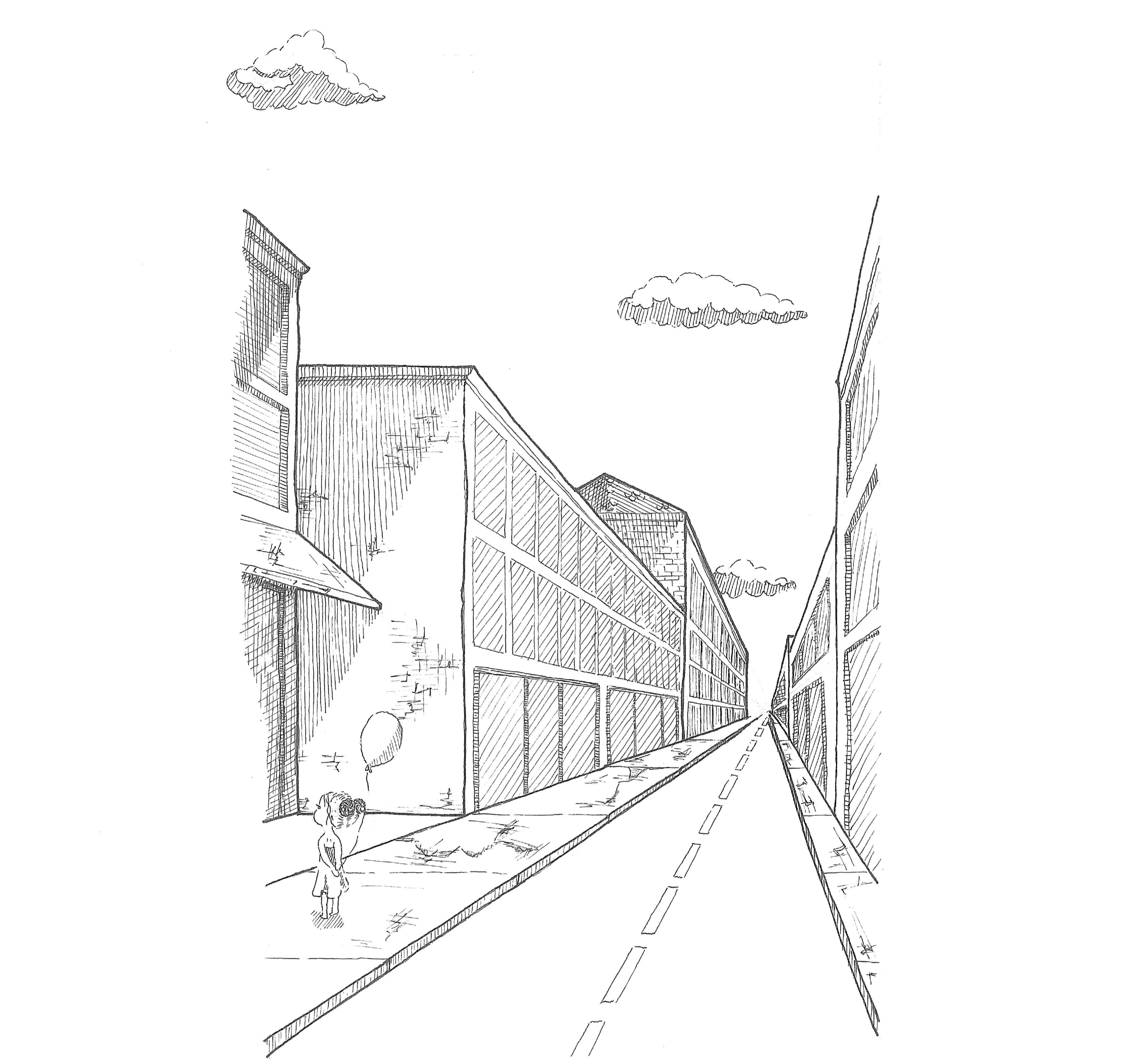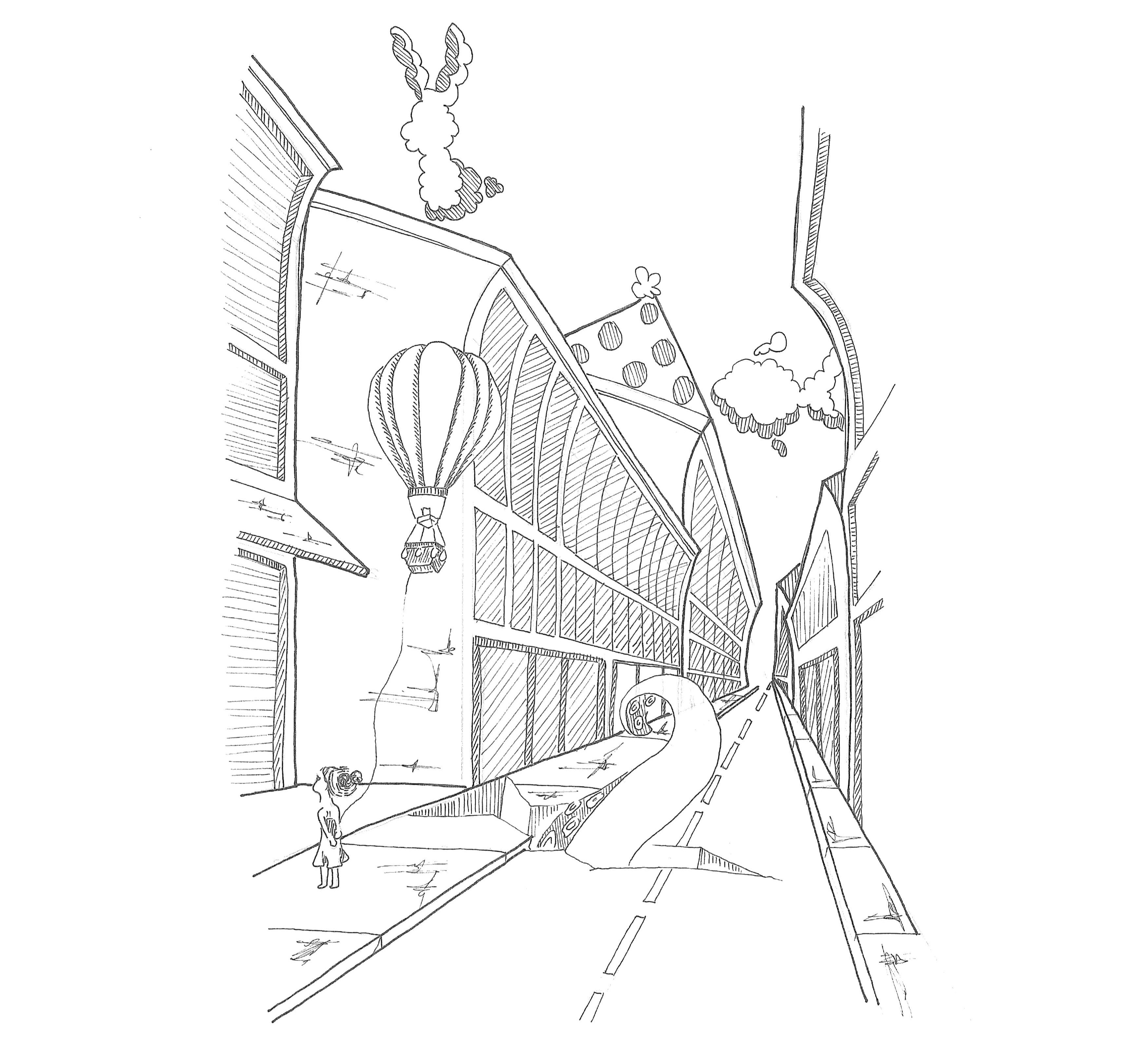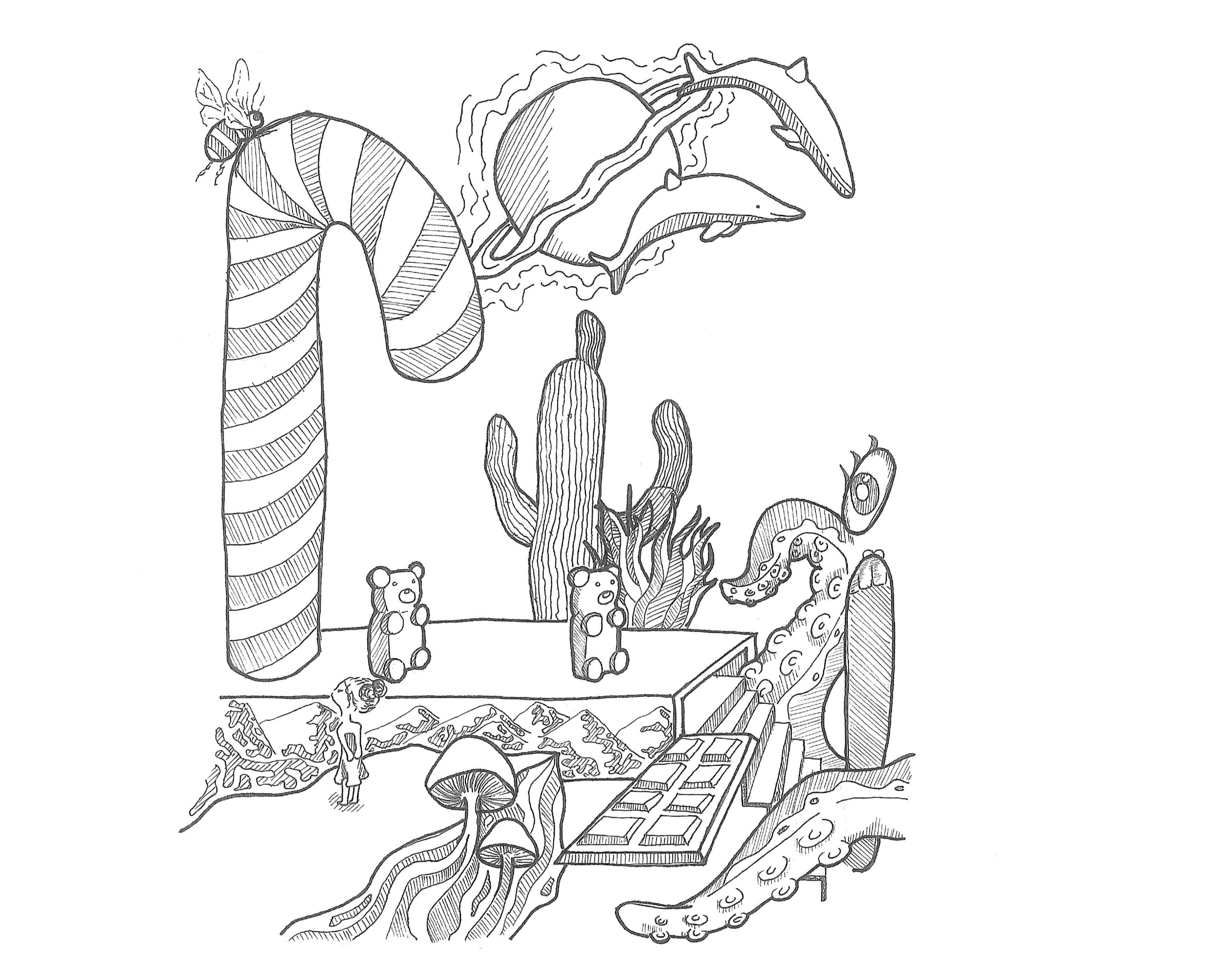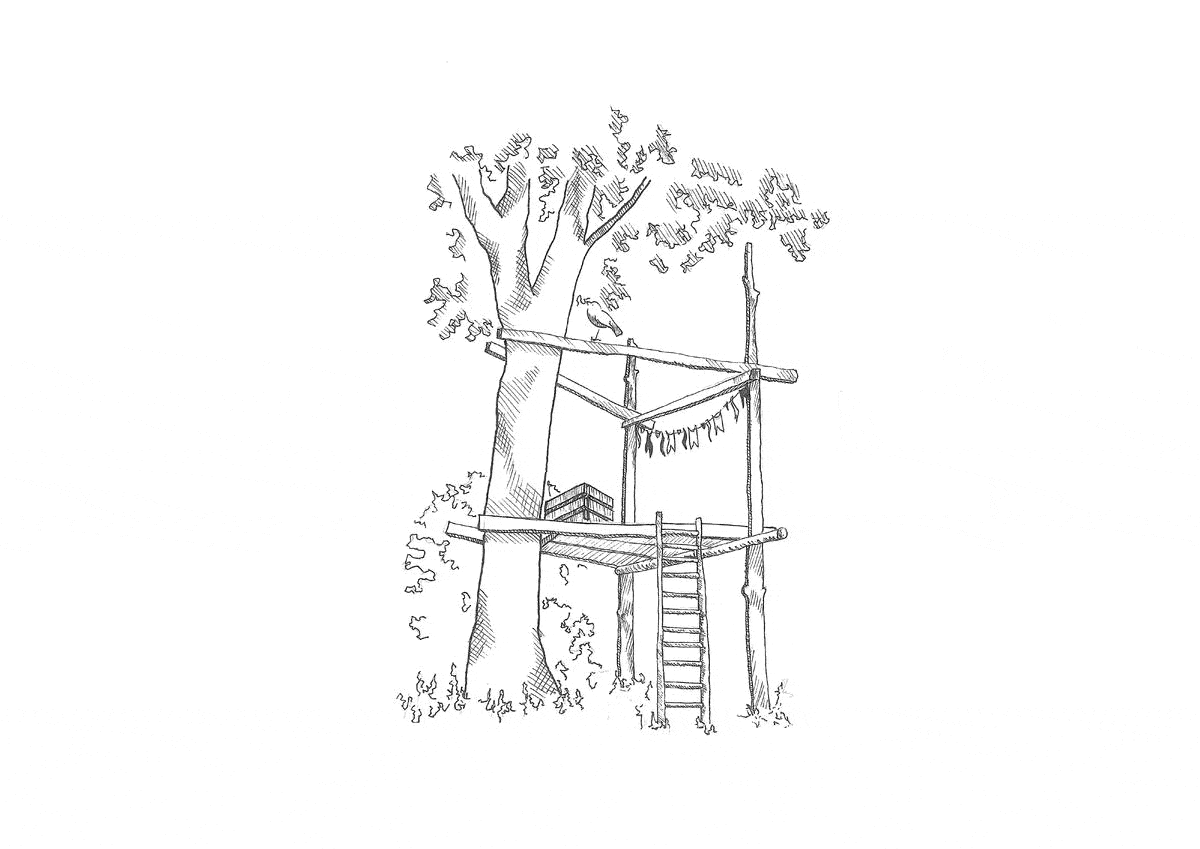Unmasking The Façade
Reimaging the Child’s Artifice of Architecture

Tania Verburg
MArch 2022
Supervisors:
Unit Leader: Dickson Adu-Agyei
Unit Tutor: Veronica Chipwanya
Unit Assistant: Demi Bridgland
UNIT 20
Spectres of the Frame
The best visual effect tool they have at their disposal is the brain of the audience, which stitches things together to make sense.
This study adopts Baudrillard’s four phases of simulacra (1981:6) alongside key principles of film manipulation to speculate on the multiple forms and levels of reality. For Baudrillard, simulacra are things that replace reality with its representation and simulation is the imitation of a real-world process (Baudrillard 1981:2). We then redesign these forms to develop what adults perceive as basic reality to the reality children perceive. The purpose is to use architecture as an element to bridge the relationship between adults and children. This gives agency to children through design.
- Alfred Hitchcock
This study adopts Baudrillard’s four phases of simulacra (1981:6) alongside key principles of film manipulation to speculate on the multiple forms and levels of reality. For Baudrillard, simulacra are things that replace reality with its representation and simulation is the imitation of a real-world process (Baudrillard 1981:2). We then redesign these forms to develop what adults perceive as basic reality to the reality children perceive. The purpose is to use architecture as an element to bridge the relationship between adults and children. This gives agency to children through design.






Keywords:
Character, Storytelling, Simulacrum, Reality, Unmask, Perspective, Alternative, Film, Holistic, Hyper-reality, Experience, Memory, Childhood, Imagination, Sensory, Morph
Character, Storytelling, Simulacrum, Reality, Unmask, Perspective, Alternative, Film, Holistic, Hyper-reality, Experience, Memory, Childhood, Imagination, Sensory, Morph
Copyright © 2022 Graduate School of Architecture, University of Johannesburg, South Africa. All Rights Reserved.

